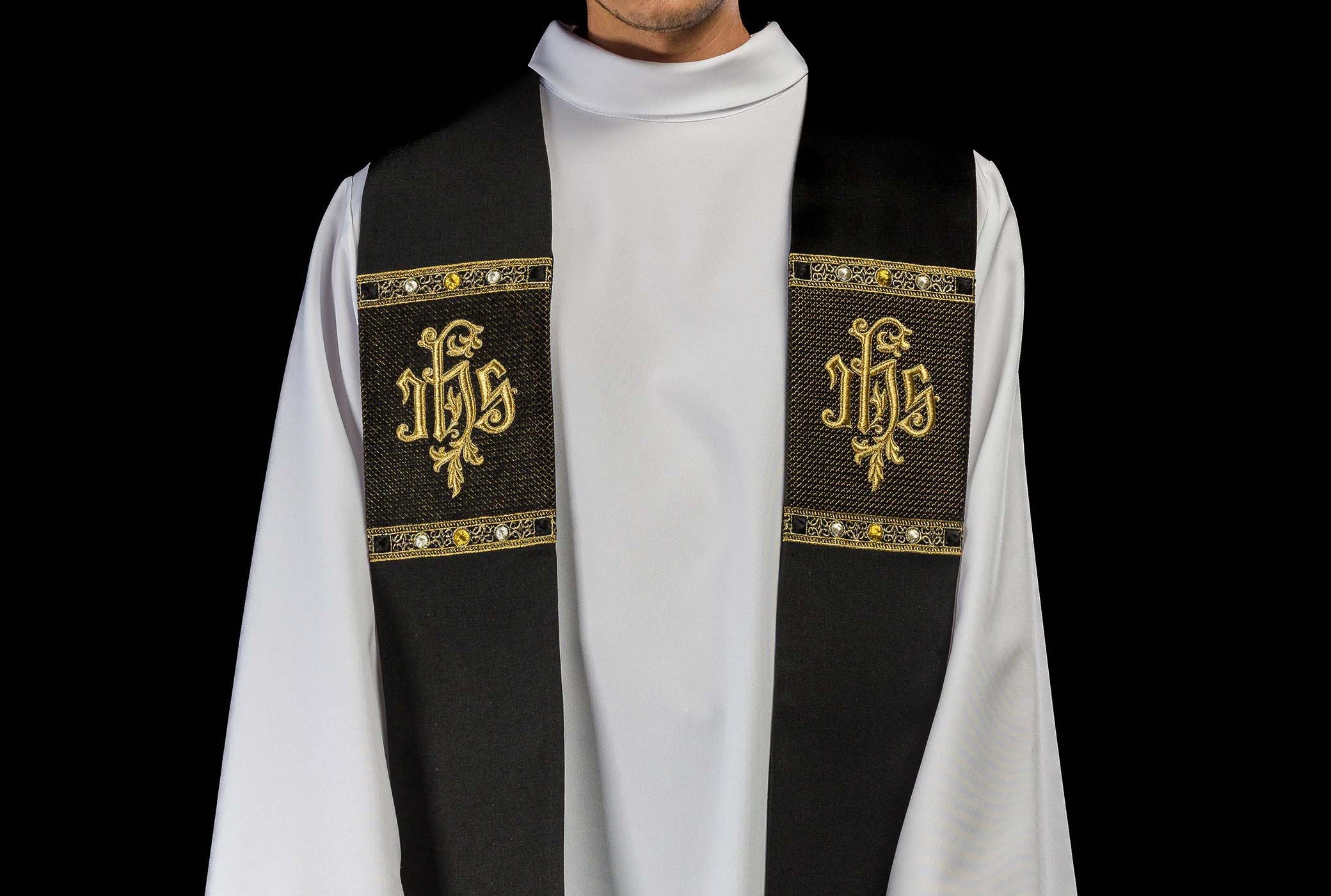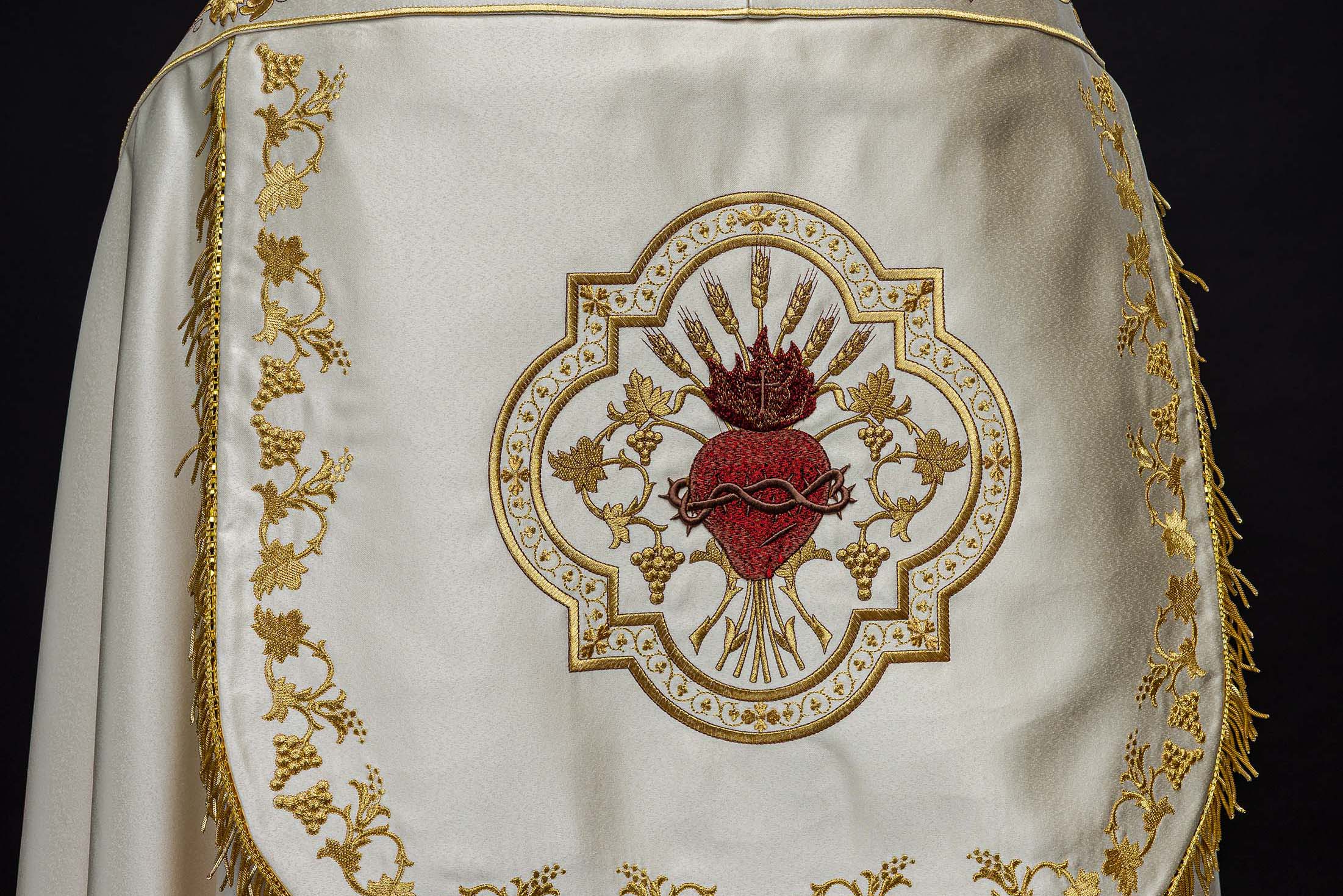Article: Prayers for the Departed: Examples and Inspiration

Prayers for the Departed: Examples and Inspiration
Prayer for the Deceased – Examples and Inspirations
Why Do We Pray for the Deceased? The Significance of Memory and Love in Eternal Life
Prayer for the deceased is a fundamental element of Christian spirituality, deeply rooted in tradition and Scripture. It is not only an expression of our love and memory for those who have passed away but also an act of faith in the reality of eternal life and the mystery of the communion of saints. By praying for our deceased, we believe in their presence before God and in the possibility of bringing them relief, support, and closer proximity to the fullness of God's presence.
How Does Prayer for the Deceased Affect Believers and the Deceased?
Prayer for the deceased has a dual significance. Firstly, for us, the living, it is a way to build and maintain relationships with those who have left us. It allows us to express our enduring love, longing, and care. It is also a form of working on our own spiritual heritage and a testament to our faith in life beyond earthly existence. It gives us a sense of meaning and purpose, reminding us of eternity and the values that matter forever.
Secondly, we believe that our prayer reaches the souls in purgatory. The Catechism of the Catholic Church teaches that purgatory is a state of purification after death for those who die in God's grace but still need purification to enter heaven. Our prayers, sacrifices, and good deeds can aid this process, bringing relief to suffering souls and accelerating their path to God.
Examples of Prayer for the Deceased: From Traditional Formulas to Personal Requests
The tradition of the Church offers many forms of prayer for the deceased that we can practice. These include both formal prayers and more personal ones, arising from the depths of the heart.
Common Prayers and Traditional Formulas
The most well-known and common prayer is "Eternal rest grant unto them, O Lord," often recited after the rosary or other devotions. It is a concise but very meaningful plea for God's mercy for the deceased.
Another important prayer is the prayer from the Holy Mass. The Mass is the most perfect form of sacrifice and prayer, and its intentions can be directed towards the deceased. The priest in the Eucharistic prayer mentions the deceased for whom the faithful pray.
It is also worth remembering the prayers that we can recite individually:
- Prayer to Divine Mercy: "Eternal Father, I offer You the Body and Blood, Soul and Divinity of Your dearly beloved Son, Our Lord Jesus Christ, in atonement for our sins and those of the whole world..." – we can intentionally direct this prayer for the deceased.
- Prayer to the Mother of God: Mary, as the Mother of all believers, is a powerful intercessor. We can ask Her to watch over the souls of our deceased.
- Prayer to the Saints: Especially St. Joseph, as the patron of a good death, or St. Gertrude and St. Mechtilde, who received revelations about relief for souls in purgatory, can be our helpers in prayer for the deceased.
Personal Prayers and Intentions
Regardless of formal prayers, the most important thing is the sincerity and love with which we turn to God in the intention of our deceased. We can:
- Mention the good qualities of the deceased: "God, I thank You for [name of the deceased] and for his/her [trait, e.g., kindness, patience]. Please grant him/her the fullness of Your glory."
- Ask for forgiveness: If the deceased harmed us during their life, or we harmed them, we can pray for mutual forgiveness.
- Ask for comfort for the family: "Lord, strengthen the hearts of the grieving family, give them strength and hope."
- Offer our suffering: We can offer our daily struggles, ailments, or sacrifices in the intention of a specific soul.
Biblical and Theological Inspirations Regarding Prayer for the Deceased
The Holy Scripture, although not directly, contains premises for the practice of prayer for the deceased. In the Old Testament, in the Book of Maccabees (2 Macc 12:43-46), we read about Judas Maccabeus, who collected money and sent it to Jerusalem to offer a sacrifice for the soldiers who had fallen in battle. The reason for this was the belief that "the thought of resurrection is holy and wholesome." This sacrifice for the fallen is often interpreted as confirmation of the meaning of prayer for the deceased.
The New Testament emphasizes the unity of the Church, both the one journeying on earth and the one that has already reached the fullness of salvation. The Letter to the Hebrews speaks of a "cloud of witnesses" surrounding us (Heb 12:1), which suggests that we are not cut off from those who are already in heaven. The saints and blessed intercede for us, and we, in turn, can support the souls in purgatory.
The theology of the Church has for centuries agreed that prayer for the deceased is an expression of love that transcends death. It is a manifestation of faith in God's mercy, which is infinite and capable of redeeming every sin, if only the soul allowed it in life.
Haftina Products Supporting the Memory of the Deceased
In difficult moments of mourning and reflection on transience, the beauty and symbolism of liturgical objects can provide valuable support. Haftina Textile Group SP. Z O. O., through its store haftinausa.com, offers a range of products that can be used in the context of memory of the deceased and prayer.
- Altar cloths: Especially those with subtle but significant embroidery, such as IHS, the cross, or Marian motifs, can be a beautiful element during the Holy Mass for the deceased. Traditional designs and high-quality materials emphasize the solemnity of the moment.
- Chalice linen: Sets of chalice linen with embroidered symbols, such as the chalice and host, or ears of wheat and grapes, symbolize the sacrament of the Eucharist, which is the heart of Christian life and the source of hope for eternal life.
- Liturgical stoles: Choosing a stole with appropriate embroidery, such as a motif of the Cross, the Paschal Lamb, or the Sacred Heart of Jesus, can be an expression of our faith in redemption and resurrection.
- Liturgical vestments (Chasubles, Capes): Individual vestments can be ordered with special intentions in mind, e.g., chasubles in white or gold, symbolizing Christ's victory over death, can be a beautiful choice for funeral ceremonies or anniversaries of death.
How to Choose the Right Keepsake?
When choosing Haftina products, it is worth being guided not only by aesthetics but also by their symbolic meaning in the context of our faith. Embroidered details, careful workmanship, and high-quality materials make each product not only an object of liturgical use but also an expression of our spiritual connection with those we love and for whom we pray.
Summary: The Power of Prayer and Memory
Prayer for the deceased is a constant testimony of love, faith, and hope. In everyday life, it is worth remembering those who have passed away, directing our sincere requests to God for their eternal salvation. Regardless of whether we choose traditional formulas or create our own prayers, the intention and deep conviction of God's love, which can overcome even death, are most important. Haftina products can be a beautiful complement to these spiritual practices, reminding us of eternity and our inseparable bond with God and His saints.
If you are looking for unique liturgical vestments or accessories that emphasize the solemnity of prayer for the deceased, we invite you to familiarize yourself with the rich offer of our store: [https://haftinausa.com](https://haftinausa.com).




